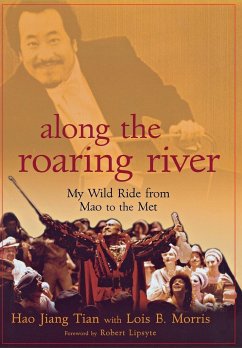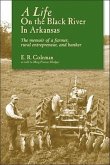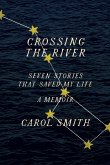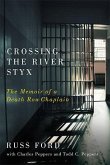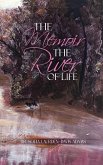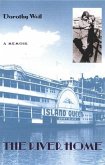Since his 1991 debut at New York's Metropolitan Opera, Hao Jiang Tian has appeared on the world's greatest stages, more than 300 times at the Met alone. How he got there, how-ever, is a drama of bittersweet humor, mortal danger, heartbreaking tragedy, and inspiring triumph--more passionate and turbulent than even the grandest opera. In Along the Roaring River, Tian relives his coming of age in China during one of its most chaotic periods, the Cultural Revolution of the 1960s and 1970s. Wild and rebellious, nature-loving, emotional, and yearning for beauty, he finds release in underground love songs howled from mountaintops and banned books stolen from boarded-up libraries. Decades after leaving China during the post-Mao Anti-Spiritual Pollution Campaign, he returns to find his homeland vastly different. In between, more by fate than by design, he achieves success in the most Western of art forms--and takes his place among the influential Chinese artists, film directors, and composers of this era, who were all shaped by that terrible time. Tian was born to stern revolutionary parents who became important musicians in the People's Liberation Army, enjoying the privileges reserved for officials of New China. The boy showed little promise of living up to his parents' expectations. He hated music. He celebrated the end of his forced lessons at the piano--the "big black beast with eighty-eight teeth"--when his unsmiling teacher was sentenced to isolation for counterrevolutionary tendencies. Then, when Tian's own loyal Communist parents were sent to a far-off coal-mining town to be "reeducated," young Tian found him-self abandoned and alone in Beijing. Without parental supervision, outside politics, and, at age fifteen, assigned to hard labor--cutting metal in the Beijing Boiler Factory--the young man found himself spiritually free. He even fell in love with the piano-beast, with which he shared his tiny, lonely room. He taught himself accordion and that most decadent of instruments, the guitar. He became a singer by chance, and, after seven years, tricked his way out of the factory and into a musical audition that changed his life. He smuggled watches with gun-wielding gangsters to scrape together enough money to leave China. And then, on his way to Denver to study voice, on his first day in the United States, he went to the Metropolitan Opera and saw the very first opera of his life. Eight years later, he made his debut at the Met alongside Plácido Domingo. Peppered with charming, frightening, and sobering anecdotes, Along the Roaring River is important and rewarding reading for anyone who loves opera, political history, or a thrilling and powerful true story well told.
Hinweis: Dieser Artikel kann nur an eine deutsche Lieferadresse ausgeliefert werden.
Hinweis: Dieser Artikel kann nur an eine deutsche Lieferadresse ausgeliefert werden.

